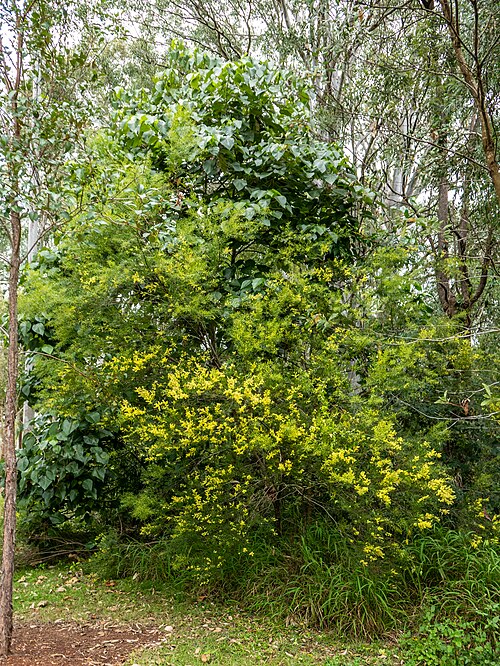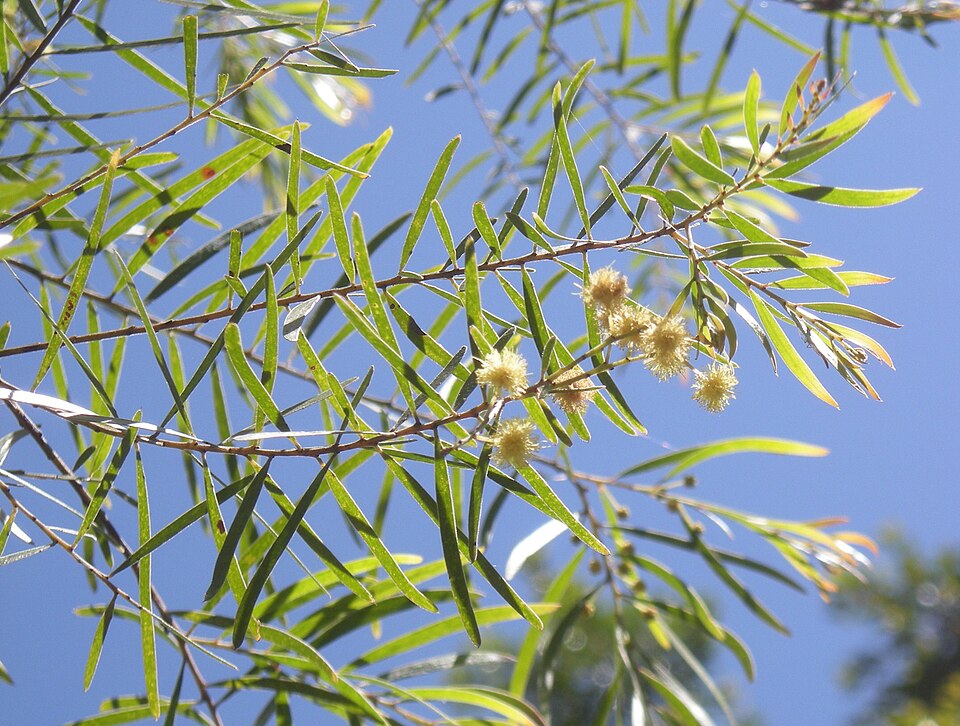Fringed Wattle: A Delightful Australian Native for Warm Climate Gardens
Meet the fringed wattle (Acacia fimbriata), a charming little shrub that brings a touch of Australian sunshine to gardens in warmer climates. With its delicate, fern-like foliage and cheerful pom-pom flowers, this petite beauty packs quite a punch in the landscape design department.
What Makes Fringed Wattle Special?
The fringed wattle is like that friend who’s effortlessly stylish without trying too hard. Its fine, feathery leaves create a soft, textural backdrop that makes other plants look their absolute best. Come flowering time (typically late winter to spring), the shrub erupts in clusters of bright golden-yellow, fluffy ball-shaped blooms that practically glow in the garden.
This compact shrub typically reaches about 3-6 feet in height and spreads to a similar width, making it perfect for smaller gardens or as part of a mixed shrub border.
Native Range and Garden Role
Originally from the coastal regions of eastern Australia, particularly New South Wales and Queensland, the fringed wattle has adapted beautifully to life in warm, Mediterranean-like climates around the world.
In garden design, this versatile performer can wear many hats. Use it as a screening plant for privacy, plant it in groups for erosion control on slopes, or feature it as a specimen plant where its delicate texture can be appreciated up close. It’s particularly stunning when planted where morning or evening light can filter through its fine foliage.
Perfect Garden Matches
Fringed wattle thrives in:
- Coastal gardens where it can handle salt spray
- Xerophytic or drought-tolerant landscapes
- Native plant gardens (if you’re in Australia)
- Mediterranean-style gardens
- Low-maintenance landscapes
Growing Conditions and Care
Here’s where fringed wattle really shines – it’s refreshingly low-maintenance once established. This drought-tolerant beauty prefers:
- Sunlight: Full sun to partial shade (though it flowers best in full sun)
- Soil: Well-draining soil is essential – it won’t tolerate soggy feet
- Water: Minimal irrigation once established; actually prefers to dry out between waterings
- Climate: USDA hardiness zones 9-11
Planting and Care Tips
Getting your fringed wattle off to a good start is pretty straightforward:
- Plant in spring or fall when temperatures are moderate
- Ensure excellent drainage – amend clay soils with sand or plant on a slope
- Water regularly for the first year, then back off to occasional deep watering
- Prune lightly after flowering to maintain shape and encourage bushiness
- No fertilizer needed – these plants actually prefer lean soils
Wildlife and Pollinator Benefits
Those cheerful yellow flowers aren’t just pretty faces – they’re bee magnets! Fringed wattle provides valuable nectar for bees and other pollinators during its blooming period. The dense foliage also offers shelter for small birds and beneficial insects.
A Note for North American Gardeners
While fringed wattle isn’t native to North America, it’s not considered invasive in areas where it can grow. However, if you’re passionate about native plants, consider exploring native alternatives like desert willow (Chilopsis linearis) for similar fine-textured foliage, or native Acacia species if you’re in the southwestern United States.
The Bottom Line
Fringed wattle is a delightful choice for gardeners in warm climates who appreciate low-maintenance plants with high visual impact. Its combination of delicate beauty, drought tolerance, and pollinator appeal makes it a winner in the right setting. Just remember – good drainage is your key to success with this charming Australian native.








